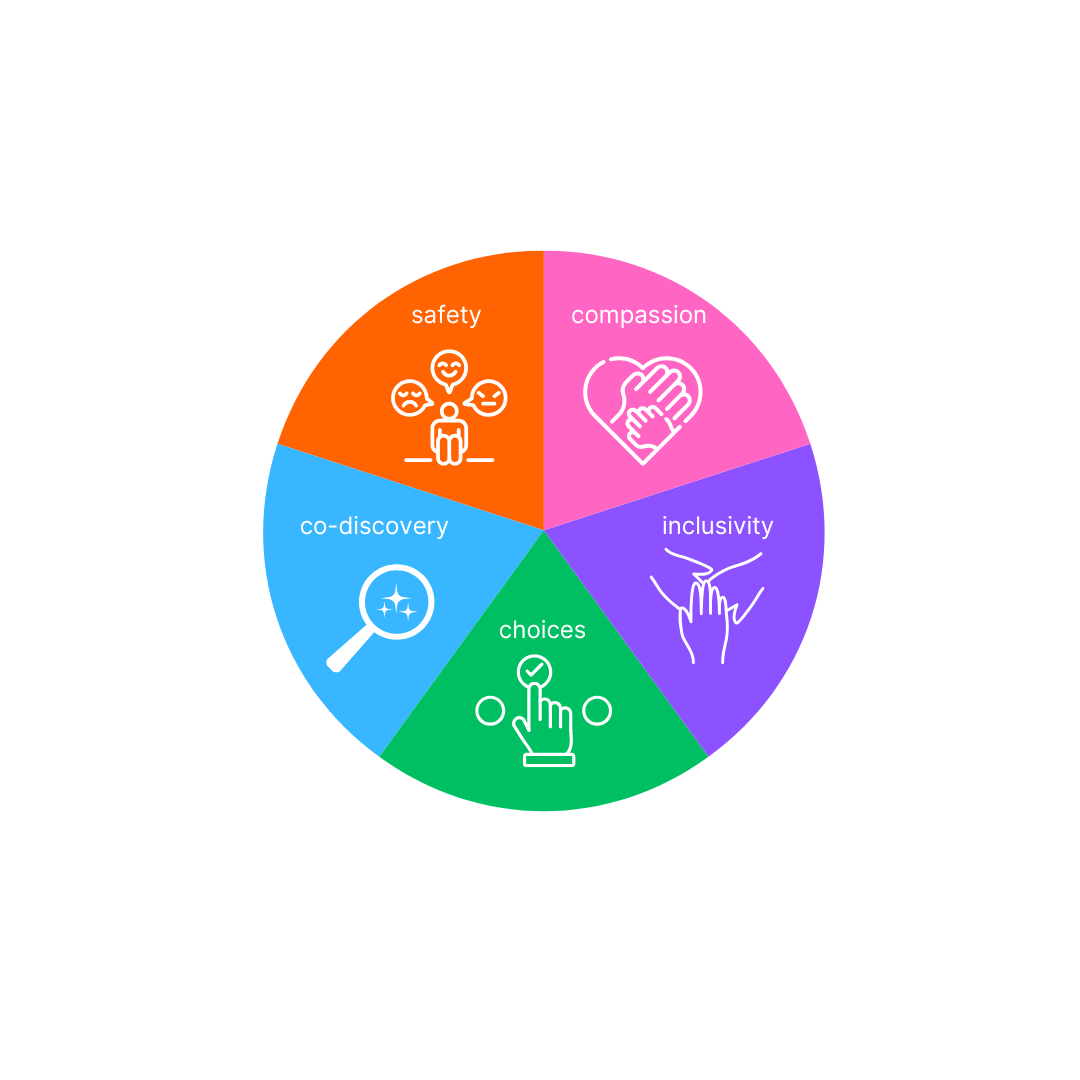our vision
Recovery College Tasmania (RCT) beholds the fundamental belief that recovery is possible. We provide learning opportunities for Tasmanian communities to improve their mental health knowledge and wellbeing, to explore possibilities for personal recovery through education. We bring together lived experience and professional expertise in a trauma-responsive and inclusive education framework, developing knowledge and skills within our students that enhance the possibility for personal empowerment, discovering hope, building connections, and participating more fully in life. Recovery Colleges exist around the world. We keep integrity with recovery principles.
we are unique because
- we are a Department of Health initiative led by Statewide Mental Health Services (SMHS), prioritising the mental health and wellbeing of people living in Tasmania
- we are on an island, we connect across urban and regional communities
- we co-discover all aspects of the education service to ensure it meets the needs of local Tasmanian communities (and will continue to do so)
- we have developed student-led curriculum that considers diverse ways of learning during mental health episodes
- we are a mental health and education initiative bringing together lived experience and professional expertise
- we provide learning sessions before, during and after mental health challenges for education and continuity of care
- we promote transformational change at an individual and system level embracing a recovery culture by empowering people
our values
Our community co-discovered what they value in relation to mental health education.
compassion
prioritises
empathy, understanding and kindness
inclusivity
ensures all
students, regardless of their background, identity, circumstances or mental
health experiences, have equitable access to meaningful education
choices
student-led
approach providing students with diverse and meaningful mental health education
allowing them to make decisions that align with their strengths, needs,
interests and wants
co-discovery
a creative
and collaborative process where the community works together as equal partners
in sharing their wisdom and valuing lived experience to create meaningful
mental health education for Tasmanian communities
safety
creates a
learning environment where all students feel physically, emotionally, socially
and psychologically safe

